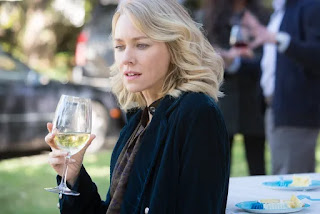It all started with a beautiful man. But don't most things start that way? An attractive person can change your world. I grew up on 1980's movies where it's usually a male character who falls in love at first sight with a female character and then spends the rest of the movie pursuing her and having thoughts about nothing but her. Movies like "Valley Girl" when Randy the punk spotted beautiful valley girl, Julie, on the beach and then crashed the preppie party to meet her. Well, I'm not about to crash any parties, but after seeing Robert Lamm of Chicago on their "Live at Tanglewood" concert video from 1970, I have been consumed by all things Chicago.
A few months ago in August, I flipped my TV channel remote on the Chicago episode of AXS Channel's "Rock Legends" series. I remembered that my former stepfather gave me his "Chicago IX - Greatest Hits" album on vinyl when I was a teenager. This was in the 1980's, and until I'd heard this album, I had no idea that Chicago had a full brass section and a singer with a deep voice. I was only familiar with their videos showing Peter Cetera as their lead singer, a blonde-haired tenor who sang ballads. It was a pleasant surprise to discover this earlier version of Chicago, and I listened to my "Chicago IX" album regularly. I was told the singer with the deep voice on my album was Terry Kath who died in the 1970's in a gun accident. My favorite songs on the album were "Make Me Smile," "Call on Me," "Beginnings," and "Feeling Stronger Everyday."
After the AXS episode refreshed my memory of how much I loved those songs, I decided to look on YouTube for Chicago videos. I searched for "Beginnings" and stumbled upon the Tanglewood concert. At first, I assumed the long-haired man getting ready to sing at the microphone was the deceased Terry Kath. Basically, I just assumed this because I knew he wasn't Peter Cetera. But right away, I heard him say, "Terry," while looking to his side and gesturing with his hand, so I said to myself, "Oh. This isn't Terry Kath. BUT THEN WHO IS THIS HANDSOME GUY??!!" I Googled and found out it was Robert Lamm and that he is still alive and STILL good-looking at age seventy-eight.
Soon I was watching every single Chicago video and documentary I could find. Not just to see 1970's Robert Lamm but because Chicago's musicianship speaks to me. Even though I consider myself primarily a novelist, at the core of my heart, I am a musician. When I was five years old, I begged my parents to let me take piano lessons. They put me off until I was six because they didn't want to waste money on a piano only to have me change my mind. I didn't change my mind, and I took lessons until I was sixteen. Then, when I was eighteen, I enrolled at Boston's Berklee College of Music. Watching live Chicago videos during the Terry Kath years of 1970 through 1977 is like being at Berklee again. Every night I enjoy sitting with a half glass of Chardonnay or a half bottle of Guinness beer with my headphones on and plugged into YouTube. I am behind in my podcasts and in editing the 2nd draft of my newest novel because I keep watching and listening to Chicago in the 1970's, and it feels so good.
One day last month, I was really angry. Just from the usual, everyday life's frustrations. So at night, I put the entire "Live at Tanglewood" concert into my headphones yet again. Terry Kath's amazing and busy guitar playing and Danny Seraphine's wild, forceful, drumming helped get everything out of me. It was cathartic and exactly what I needed. I was able to sleep peacefully that night.
So why do I keep on watching and listening to Chicago? I believe it is because obsessions allow us to distract our minds from the everyday things that are troubling us. Things like the fact that I have only $10 left in my checking account. Or when I think about how if I carry my mug of tea down the stairs, I may trip and fall and die like Ivana Trump did while carrying her mug of coffee. Or if something like that doesn't happen to me, and I live another forty years, is the planet going to be half submerged under water by then? These days, when I have anxious thoughts, I immediately switch them, and instead, I plug into Chicago.
I know that eventually my fascination with Chicago will dim, but I don't want it to yet because I'm having too much fun. I'm excited I'll get to see Chicago play live when they tour the East Coast in April 2023. But what would be even better is if one night, Robert Lamm could magically step out of that "Chicago - Live at Tanglewood" YouTube video from out of my laptop the same way Jeff Daniels stepped off the movie theater screen in Woody Allen's "The Purple Rose of Cairo!" If that happened, I could remain in a dream fantasy world forever. Surely, this would be the perfect cure for my anxiety. If only!
My ticket confirmation to see Chicago. Robert Lamm is in the middle in white pants.










